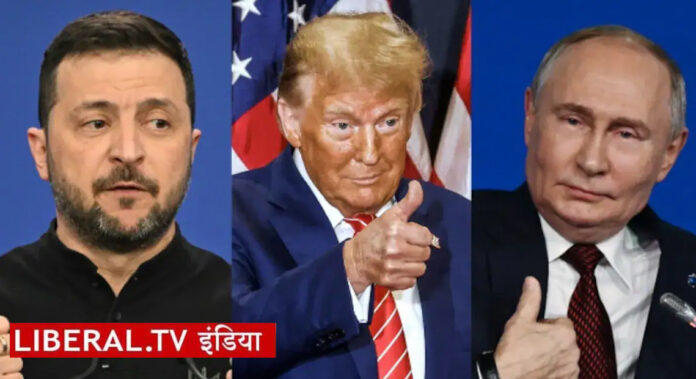In a notable diplomatic breakthrough, the United States and Russia have agreed to begin efforts to bring an end to the ongoing Russia-Ukraine conflict. This development followed a pivotal meeting between US Secretary of State Marco Rubio and Russian Foreign Minister Sergey Lavrov in Riyadh, Saudi Arabia, on Tuesday. The meeting marked the first significant step toward addressing the deadliest conflict in Europe since World War II. Both nations have appointed high-level teams tasked with navigating the complex path to peace, emphasizing their intent to resolve the war “as soon as possible in a way that is enduring, sustainable, and acceptable to all parties involved.” However, Ukraine, which has been at the heart of this conflict, made it clear that it would not accept any peace settlement imposed without its consent, underscoring its crucial role in any resolution.
Beyond the immediate goal of peace in Ukraine, this meeting also set the stage for a broader discussion aimed at addressing long-standing tensions in US-Russia relations. While the primary focus of the talks remains the Ukraine conflict, both parties acknowledged that the diplomatic process is still in its nascent stages. The discussions were framed within a larger context of potential cooperation between the two superpowers, which, despite years of adversarial relations, still hold significant geopolitical and economic weight on the global stage.
Rubio outlined the key objectives discussed during the talks, which included the restoration of full diplomatic staffing at their embassies in Washington and Moscow—an important step toward normalizing relations. Both sides also agreed to form a high-level team dedicated to supporting peace negotiations for Ukraine. Moreover, they explored possibilities for closer economic cooperation, signaling that there might be opportunities to move beyond decades of rivalry into more productive and mutually beneficial engagement.
Lavrov, for his part, confirmed the constructive nature of the dialogue. He acknowledged that meaningful progress was made and agreed on the need to lay the groundwork for fully restoring cooperation between the two nations. This sets the stage for the kind of future partnership that, despite the current tensions, could bring geopolitical stability and economic benefits to both countries and the broader international community.
Rubio highlighted the long-term potential of resolving the conflict, noting that should the war come to an acceptable end, there would be significant opportunities for collaboration with Russia on shared global interests. He emphasized that such a partnership could not only benefit the geopolitical landscape but could also foster economic growth, benefiting both nations and the world at large. This optimistic view of the post-conflict scenario, though cautious, reflects the hope that ending the war could be the first step in a much-needed thawing of relations between the two global powers.
While these developments are promising, the road to peace remains fraught with challenges. The international community, particularly Ukraine, will be closely watching to ensure that any resolution respects Ukraine’s sovereignty and territorial integrity. Still, this shift in diplomatic efforts—particularly the possibility of easing tensions between the US and Russia—could pave the way for a more stable and cooperative future, provided that both sides remain committed to meaningful dialogue and negotiation.



